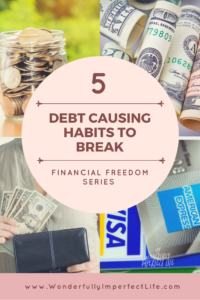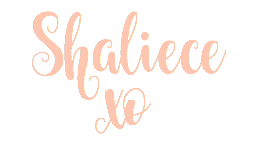
This Friday begins a five week series and discussion on becoming debt FREE. You will read stories and get tips on how my family and others are overcoming debt and building wealth.
I encourage you to join in on the conversation by leaving feedback and asking questions. If you have a financial freedom story you’d like to share please do so in the comments.
Becoming financially FREE has been a huge priority for my family. Keeshon and I strongly believe that God never intended for us to be in debt. We’ve made lots of adjustments to the way we think about money. Many of the choices we initially made concerning our finances were poor and lead us into debt. I have listed the top 5 below.
- Not having a budget. Sound so simple but we just didn’t do this initially. We switched over to a zero based budget system. We designate every dollar to a specific financial obligation, budget category or savings/retirement plan. As Dave Ramsey says, you’ll be “spending your month’s income on paper” before you spend it in real life. We don’t leave any money lingering around in our spending accounts. Most of the time, unassigned money is more likely to be spent on impulse when it’s not attached to a specific category.
- Using credit cards. This was by fare one of the hardest habits for me to break. I mean, it’s like have extra money to spend. It’s really not. If you can’t afford to pay cash for it, don’t buy it.
- You spend everything you earn. Learn how to save money. Even though we both earn an income, we try to live on just one income and use the other as savings and investment funds. There will be a post in this series on how to begin that process.

- Not Diversifying. Ever heard the expression “Don’t keep all your eggs in one basket”? There’s a reason for that. Assign separate accounts for different financial obligations. Some will be for long-term and others short-term. The benefit of having several accounts with several institutions is that you are able to take advantage of high yield savings rates and separate accounts also set up a barrier between you and your money.Money that you need to access on a daily or weekly basis such as gas or groceries should be set up in an account that has a debit card and or checks (Do people still use these? Let me know in the comments). On the other hand, money that is designated for short or long term goals, such as taxes, home owners dues, etc. should be kept in accounts preferably with an account that is not as easily accessible. Barriers will help deter you from spending money frivolously since you’ll need to jump through a few hoops to access the cash. You can set up accounts for as many or as few categories as you like.
- Not Automating. Don’t rely on yourself to move money. Automate as much of it as you can. I have my retirement savings automatically sent to my 401 K and the remainder of my direct deposit is set up to deposit into 2 checking accounts and a savings account. From there most of the funds and automatically set up to transfer into the appropriate accounts and all bills are set to auto-pay based on due dates. I’m human, I forget things. I love automation because it takes the human aspect out of it.
Using these strategies have allowed my husband and I to pay off a huge portion of our debt. It’s been a challenging journey but the rewards out way the struggle. If you are in the process of paying off your debt be encouraged that it will be worth all of the sacrifice in the end.
This is part 1 of our financial freedom series.
If your looking for more posts on saving money and becoming debt free, check out the rest of our Financial Freedom Series:
- 5 DEBT CAUSING HABITS TO BREAK
- INCREASE SAVINGS & CREDIT SCORE
- 5 BRILLIANT BOOKS THAT WILL HELP YOU BECOME DEBT FREE
What are some debt causing habits you would like to break?
